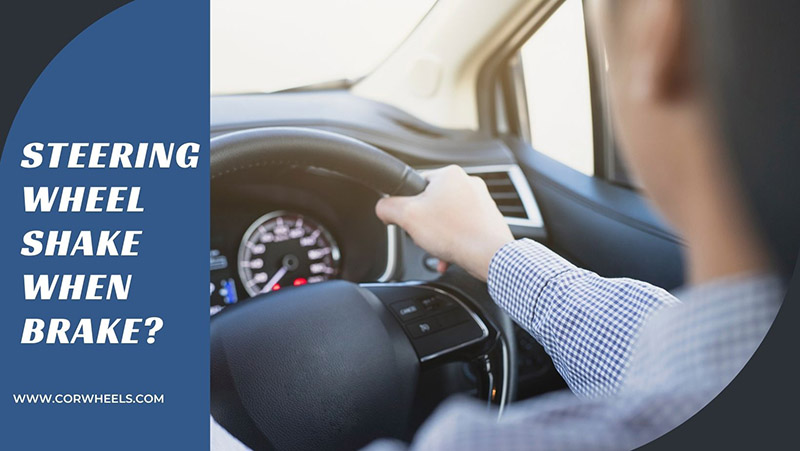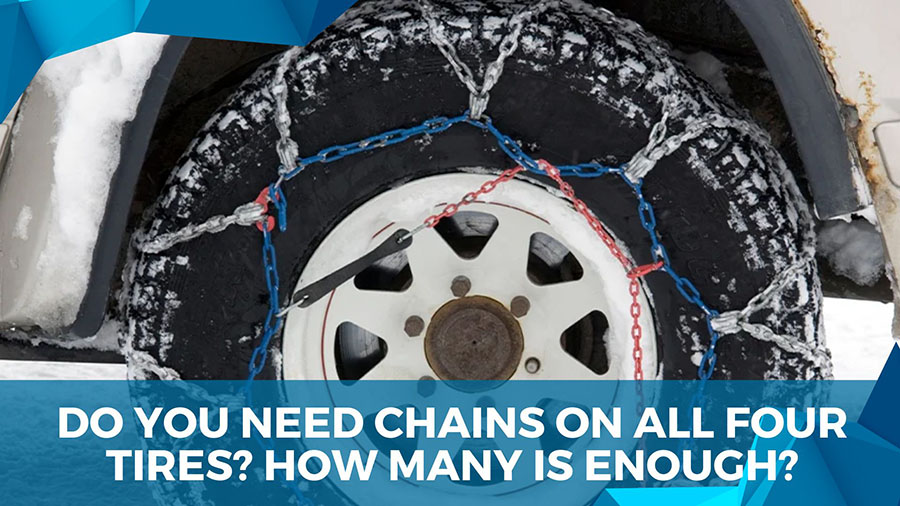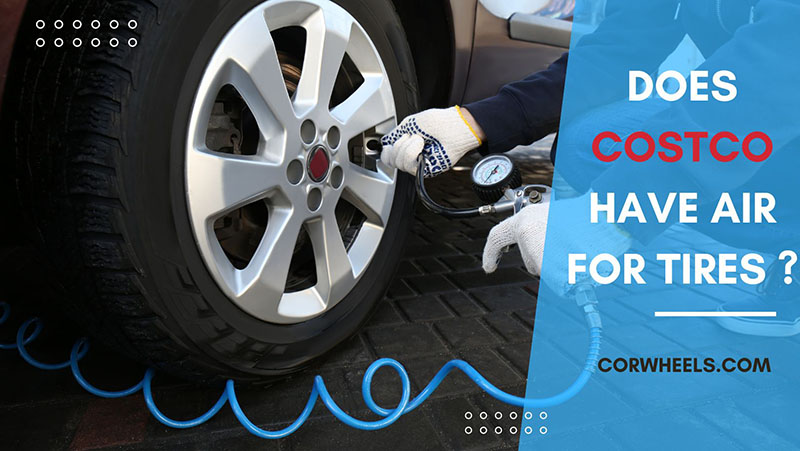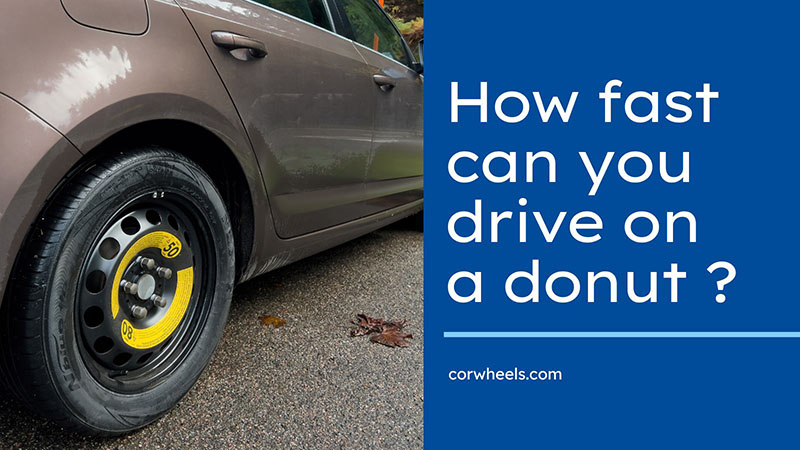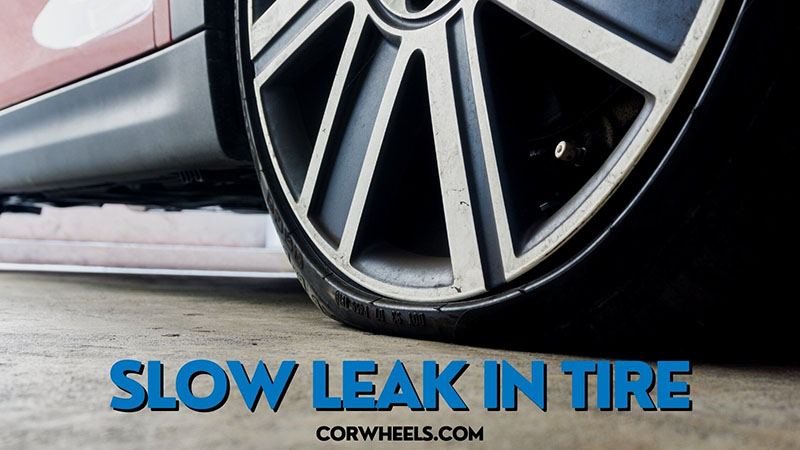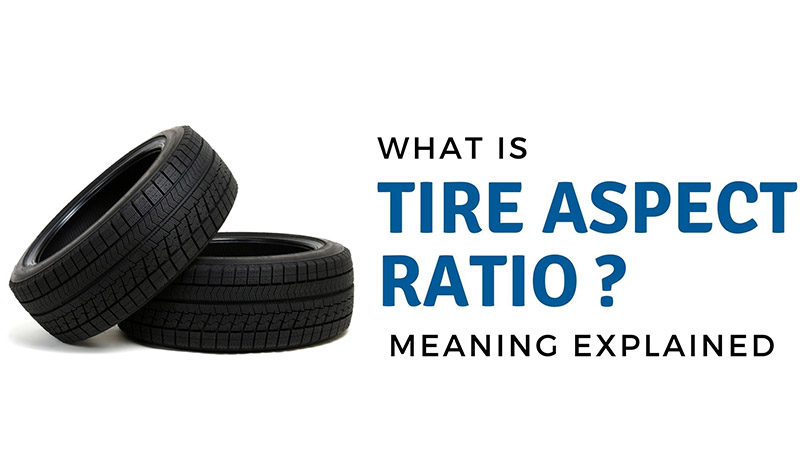Unless there are earthquakes, steering wheel vibrations should never be regarded as “normal.” Something fishy is going on with your car, and as a dutiful, sensible driver, your job is to find out what exactly it is. But how?
My team will help you tackle this ongoing dilemma by diving into the reasons behind the vibration in steering wheel at highway speeds. Let’s head in.
In this article:
Why Is My Steering Wheel Shaking?
Faulty wheel bearings, axle issues, bad suspension components, wrapped/worn-out rotors, unbalanced tires, misaligned wheels (mostly due to loose wheel nuts), and sticky calipers are usually what causes steering wheel to shake.
Some of these problems are not easy to spot at first glance unless you are an expert or a keen observer; hence, do not neglect your car’s maintenance schedule.
1. Defective Wheel Bearings
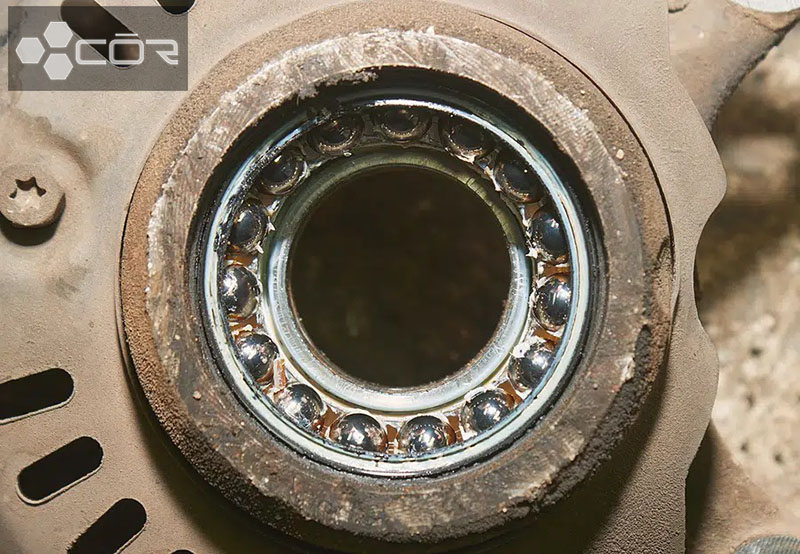
Cars tend to hit the curb during U-turns; the front tires and wheel bearings suffer the most from such incidents, which, in turn, also hamper the steering wheel operations. What starts as seemingly harmless shakes will gradually worsen as time passes by.
Still, most of the time, a bad wheel bearing is more likely to arrive as a follow-up consequence of the five other reasons listed below. I will explore them in the next sections.
For more: Wheel bearing replacement cost?
2. Axle Issues
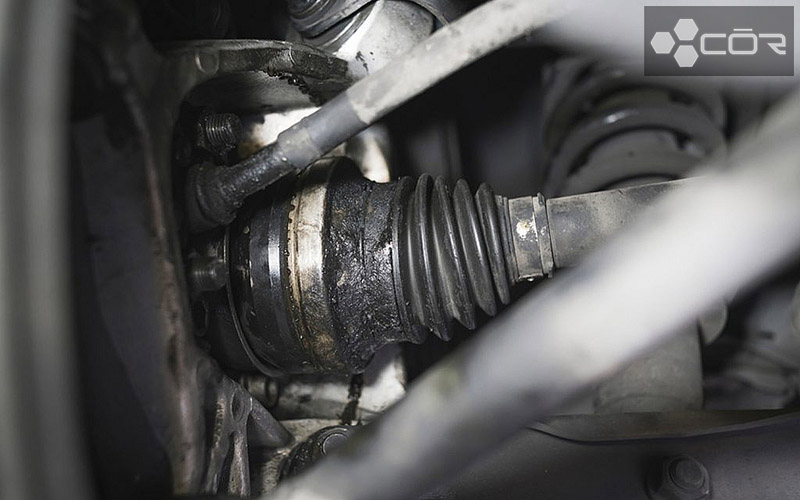
Many modern vehicles are FWDs (front wheel drives), meaning their axles are actually half shafts. As such, rhythmic tickings and slight shakes will become more noticeable when these axles break down, especially during turns.
The symptoms also indicate that axle issues have been around the corner for a while; you just failed to realize them until now.
Unbalance is another reason behind the axles going bad. Just like how a wheel imbalance affects the entire car’s performance, the same sentiment goes for axles: failure to keep them aligned and properly mounted will shake your steering wheels – and the entire vehicle – violently.
3. Flat-Spotted Tires Due To The ABS
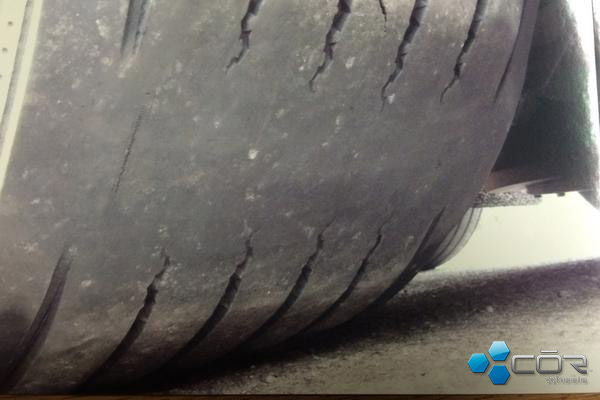
For years, ABS has become a compulsory device on every modern car model – which explains people’s astonishment when they find out the ABS is the culprit.
At its peak working condition, the ABS can easily keep the tires from flat spots and lock-ups – that is for sure. But we are talking about stuck brake boosters and old car vehicles that lock up the wheels without warnings; flat spots are inevitable in these cases, causing the steering wheel to vibrate.
4. Faulty Suspension
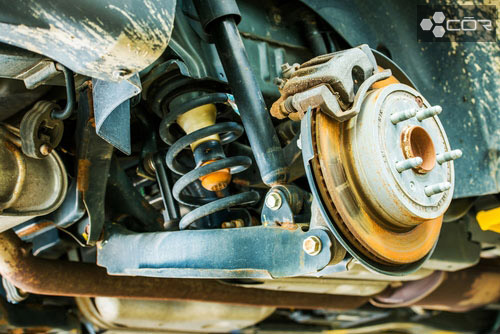
Another common possible reason is suspension issues – especially for cars that have not been taken to regular maintenance service since forever.
Like any other car compartment, suspension tends to wear down over time, and – the worst part of it all – it does so silently without any warning. No wonder most drivers do not even recognize the symptoms until their steering wheels start to shudder every few miles!
Furthermore, the suspension’s core elements (ball joints, rod ends, etc. – which also connects to your steering wheel) will act up and make weird clunking sounds upon road bumps. Uneven tire wear, premature tear, and even steering loss are on the horizon.
Fortunately, a quick visit to a trusted service center is enough to handle these problems. Do not put it off!
5. Warped Brake Rotors
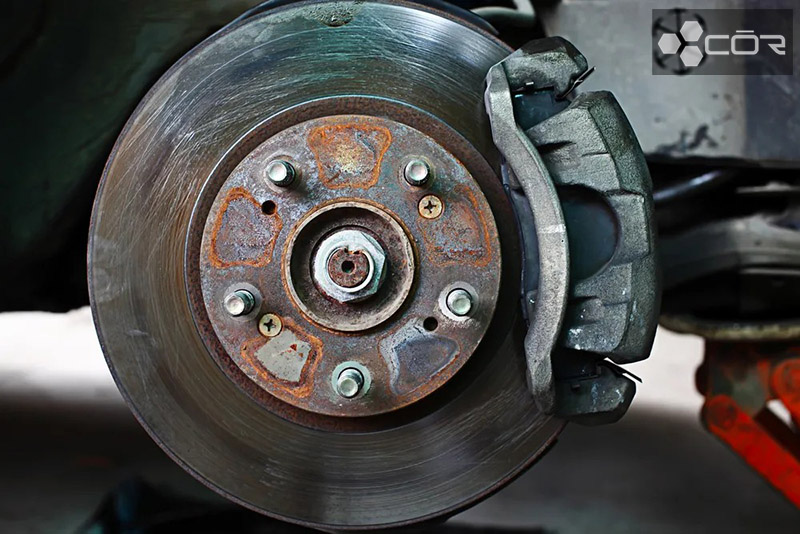
Despite regular and consistent maintenance schedules, your brake systems cannot totally escape the danger of warp rotors (which, by the way, are the shiny discs you can observe through the front wheels’ gaps).
Under normal circumstances, the rotors are clamped hydraulically on the braking pads to stop the car.
However, emergency stops or abnormal demands in rough driving conditions might pave the way for uneven low and high spots in the rotors, causing unusual shakes in your brake pedals and steering wheels whenever the rotors press against the pads.
Unfortunately, unless you spot the issue right on time, there are no other ways to go about it than purchasing replacements; these rotors break down and destroy themselves at a faster rate than one would think.
See more: Can Alignment or Warped Rotors Cause Vibration When Driving?
6. Unbalanced Tires And Misaligned Wheels
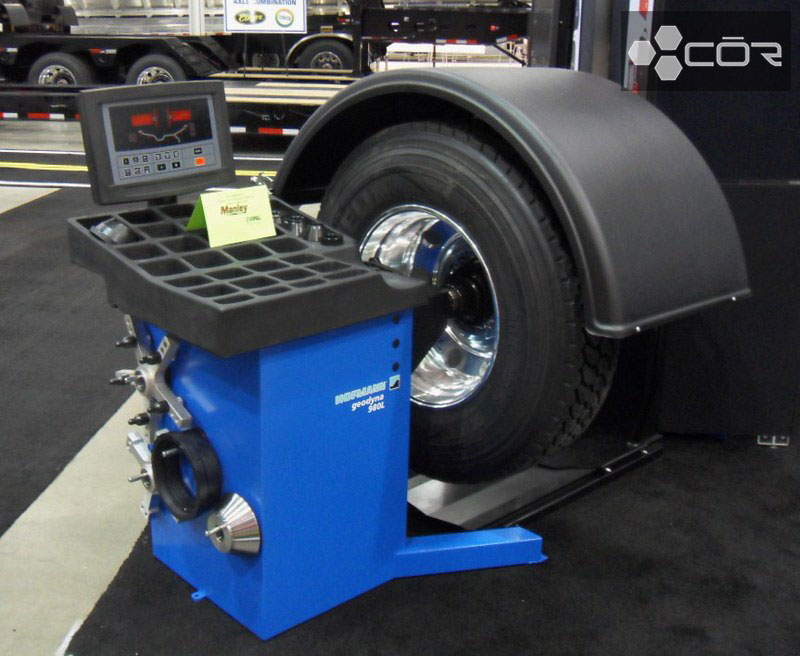
Imagine them working like an imbalanced ceiling fan or a washing machine with all the clothes ending up on just one side. Long story short: they will go nuts!
Cars with misaligned wheels will bounce around and shake at every wheel spin, which is commonly seen on my Ford F150. Michigan, where I live, has a bad reputation for many roads with hazardous potholes. That’s why I have to take my Ford for wheel balance and alignment every 3 months instead of 1-2 times per year. Frequently going over curbs also renders the lug nuts loose overtime.
Unfortunately, steering wheel shakes caused by wheel imbalance are not always noticeable at regular freeway speeds; they even disappear instantly during deceleration or acceleration, taking drivers weeks or even months to recognize something is wrong.
To prevent that disaster, always pay special attention to the wheel’s performance. Should any weird signal pop up, have it diagnosed by auto repair shops immediately.
7. Sticky Brake Calipers
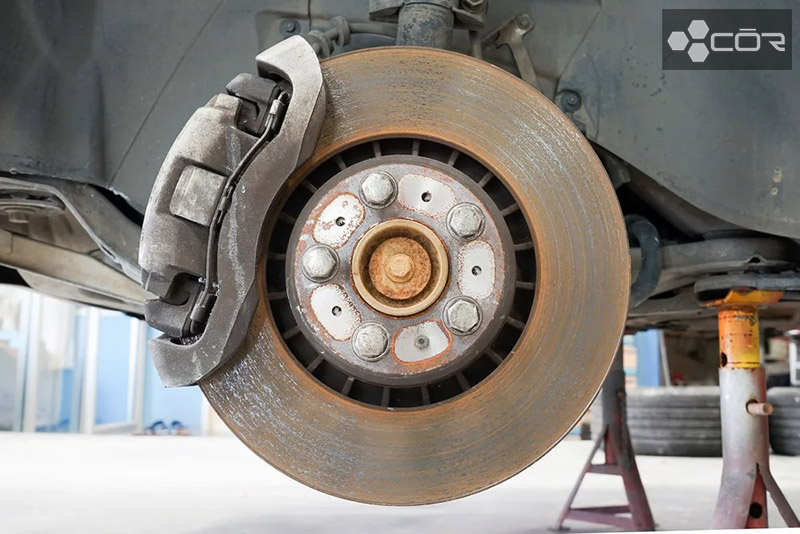
Car braking pads are sustained by brake calipers, which lower every time the car is pulled to a stop. It doesn’t take a genius to imagine what would happen if the calipers get stuck, sticky, or seized.
Instead of raising when you release your foot from the brake, the calipers will keep flushing against the rotors and cause immense handling troubles. Pulling and shaking wheels aside, they also deteriorate your tire’s performance, fuel economy, engine power, and more.
The suspected causes behind sticking calipers are wrong brake installation, debris buildup, or worn hose. Keep a close eye on your brake calipers while driving (since, for some odd reason, their malfunctions are more transparent during rides than during braking), and visit a tire shop whenever you spot something odd.
How Much Does It Cost to Fix Steering Wheel Vibration?
The job takes less than $100 if debris buildups are the culprit. But if your car experiences severe issues or damages with the critical moving components, replacements (including labor prices) can rake up to $430.
Can You Still Drive If The Steering Wheel Shakes When Braking
Yes. The car can still last you for a few hundred (or even thousands) of miles. However, it is like sitting on a bomb; you can never guess when it will eventually explode. Your safest bet is to talk with a technician as soon as possible.
Why The Steering Wheel Vibrates At 60 MPH But Not 70
As briefly discussed above, steering wheel vibrations that stem from wheel imbalance are very difficult to find out; sudden acceleration/deceleration even swallows them up completely and takes inexperienced drivers months to recognize.
Hence, it is unsurprising that your car seems to return to normal with increased speed. But in fact, the issue still lurks beneath the surface, waiting to reemerge.
Conclusion
Shaky steering wheels are not the end of the world if diagnosed and treated on time. Otherwise, ignoring it for too long means tons of car performance disasters would follow – and not to mention all the exorbitant repair charges.
Check the steering wheels at least once a month and pay more attention to them during deceleration/acceleration. Contact our team or any specialist you know if troubles ensue.

